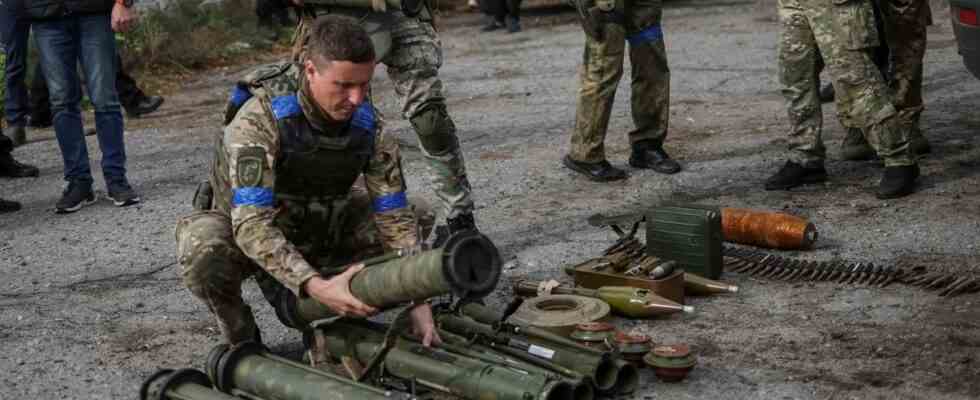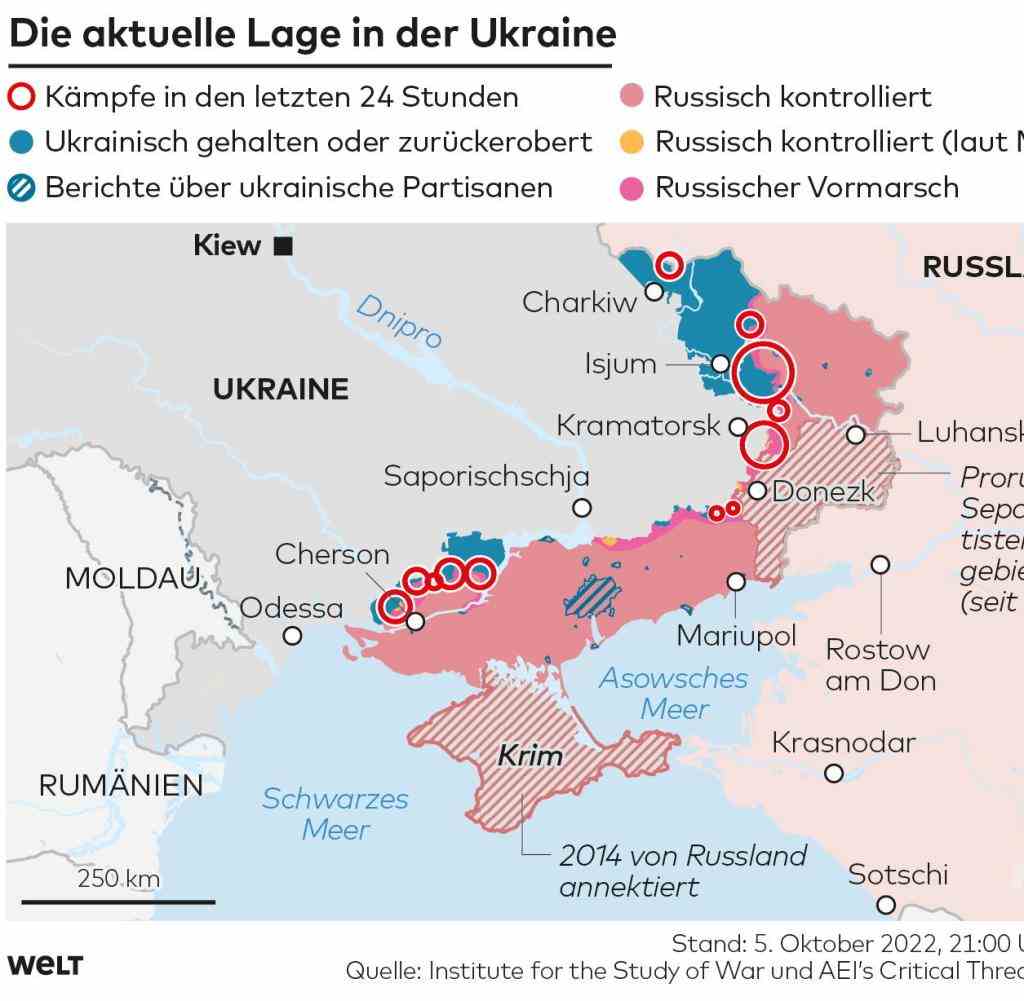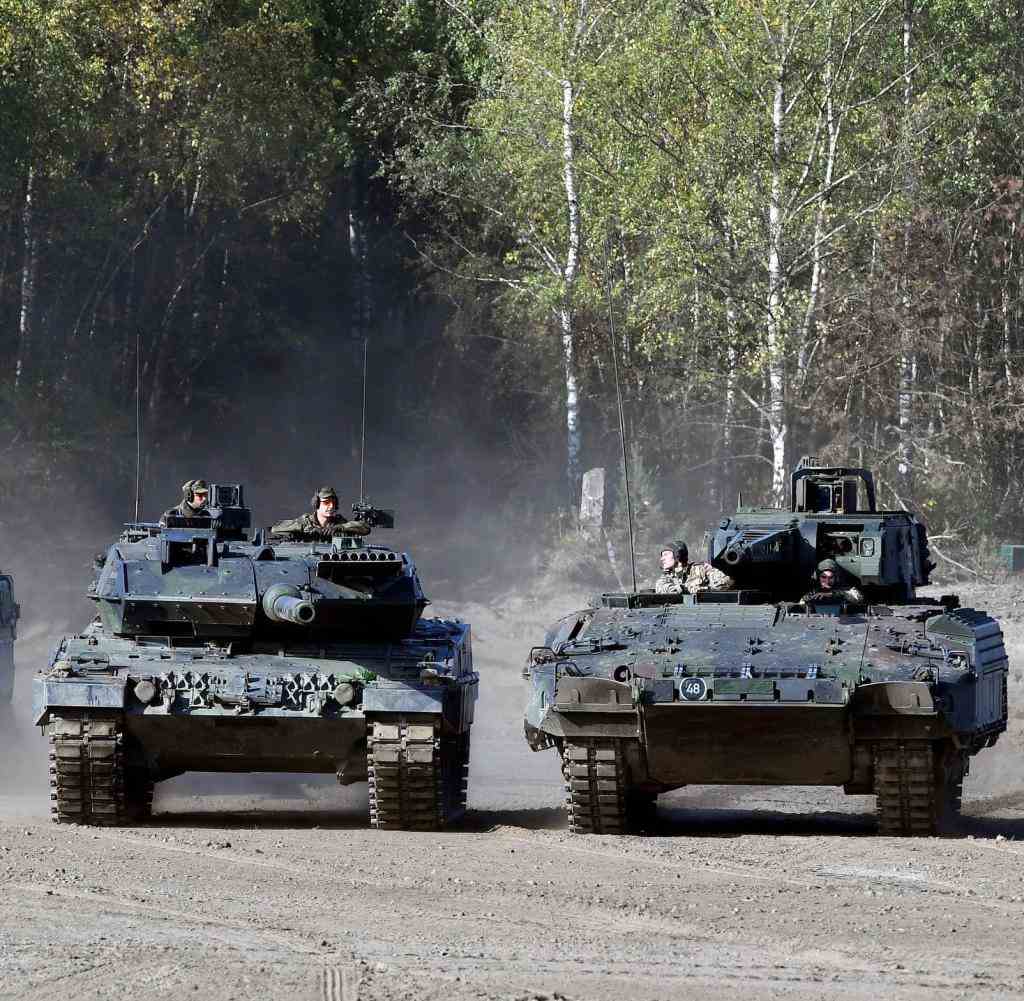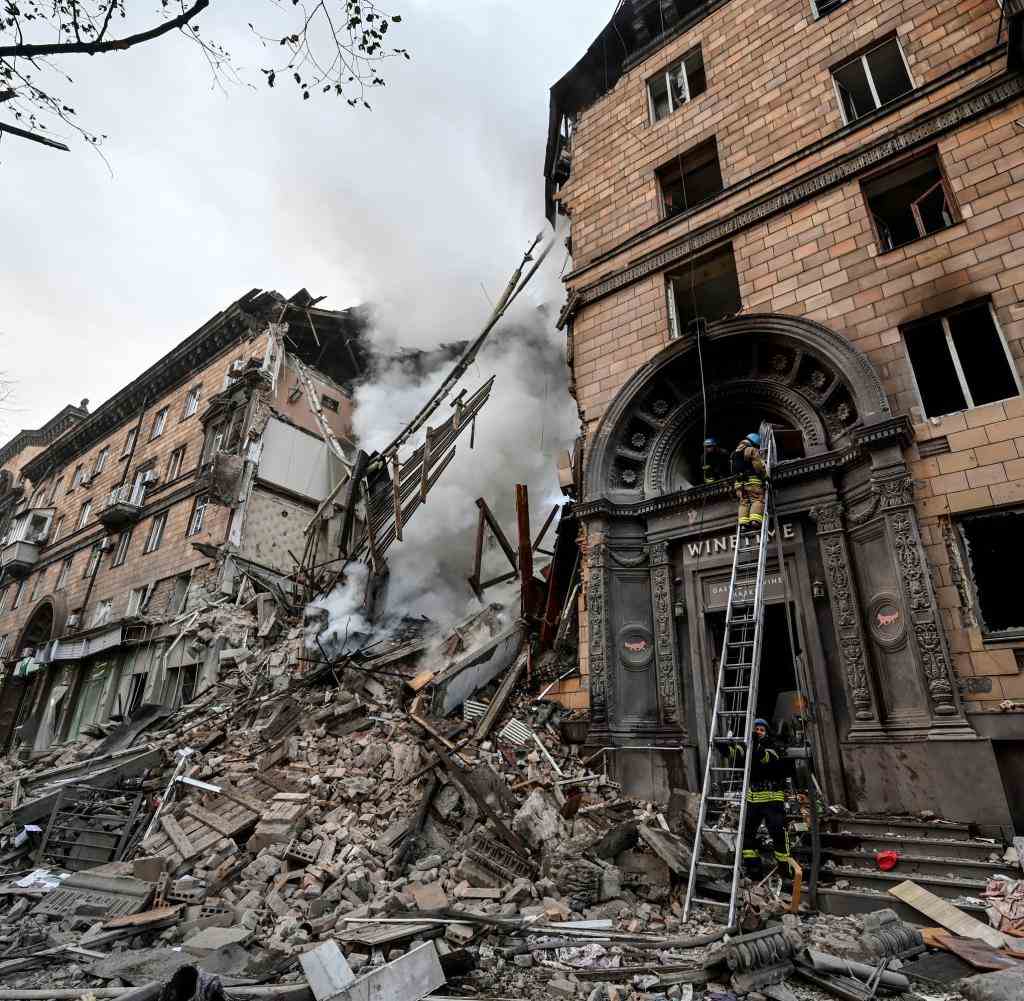Russian arms losses fuel Ukraine’s success
Ukraine reports recaptures in north and south
Ukraine reports successful advances and recaptures in the north and south, which images from internet sources are said to convey. But the regions that are being liberated are one thing above all else – destroyed.
According to military experts, Russia has long since involuntarily become the largest arms supplier to the Ukrainian army. Meanwhile, Kyiv is reporting further successes in recapturing occupied territories, while London sees Moscow in a dilemma.
MAccording to military experts, Russia has long involuntarily become the largest outfitter of the Ukrainian army. As the “Wall Street Journal“ reported, arrived with the disorderly retreat of the Russians at the Recapture of Kharkiv Hundreds of weapons fell into the hands of Ukrainians in September, including heavy equipment that could not be taken and ammunition caches. Some of the weapons are ready to use, others are being repaired to be used against their previous owners.
“It could be crucial that Russia also left behind large quantities of Soviet artillery shells, which Ukraine had previously almost run out,” writes the US newspaper. Western weapons are more accurate, but the amount of Russian weapons and ammunition will help the army in its offensive in the east of the country.
In media reports and images from social media alone, observers counted 460 main battle tanks, 92 self-propelled howitzers, 448 infantry fighting vehicles, 195 armored fighting vehicles and 44 rocket launchers. The actual number is likely to be far higher.
Ukraine has been pressuring the Russian military for weeks. On the night of Thursday, the Ukrainian President Volodymyr Zelenskyj had further recaptures in the region Kherson announced.
According to British intelligence services, Russia’s defense is fiercely contested Territories on the Dnipro River facing a strategic dilemma. One of the biggest challenges for Russian commanders is the increasing threat to the strategically important city Nova Kakhovka at the southern end of the Dnipro reservoir, said the daily briefing of the British Ministry of Defense on Thursday.
The current situation in Ukraine
Source: Infographic WORLD
The Russians needed the damaged supply route across the Dnipro in this region to supply their own troops across the river. A retreat of the units from there would certainly mean the defense of the region around the regional capital Kherson strengthen, but the political imperative will probably dictate not to withdraw, according to the British.
Moscow has already deployed the majority of its undermanned air force to defend Kherson. As a result, the Kremlin hardly has any other highly qualified and rapidly deployable troops that could stabilize the front. It is likely that reservists will be used in the future, it said.
The British Ministry of Defense has published daily information on the course of the war since the beginning of the Russian war of aggression against Ukraine at the end of February, citing intelligence information. In doing so, the British government wants to both counter the Russian portrayal and keep allies in line. Moscow accuses London of a targeted disinformation campaign.
Rockets hit residential buildings in Zaporizhia
Meanwhile, the fighting for the Ukrainian city continues Zaporizhia on. In the morning rockets hit houses. Three people were killed and at least twelve were injured, said the governor of the largely Russian-occupied region, Oleksandr Staruch. According to the local authorities, more than 40 buildings were damaged in the two attacks before sunrise and in the morning.
Rescue workers are on duty in a hit building in Zaporizhia on Thursday
Source: dpa/-
Many people were rescued from the multi-storey buildings, including a three-year-old girl who was taken to a hospital for treatment, Staruch wrote on his Telegram channel. Photos released by the emergency services showed responders searching for survivors in the rubble of a destroyed home.
The Zaporizhia region is one of four Ukrainian regions that Russian President Vladimir Putin signed on Wednesday to annex in violation of international law. There is also the Ukrainian nuclear power plant Zaporizhia, the largest in Europe, which is also occupied by Russia. The city, on the other hand, is under Ukrainian control.
“Kick-off Politics” is WELT’s daily news podcast. The most important topic analyzed by WELT editors and the dates of the day. Subscribe to the podcast at Spotify, Apple Podcasts, Amazon Music or directly via RSS feed.




